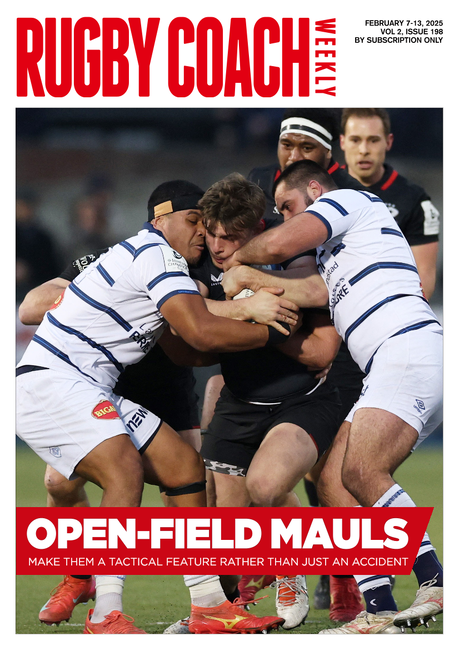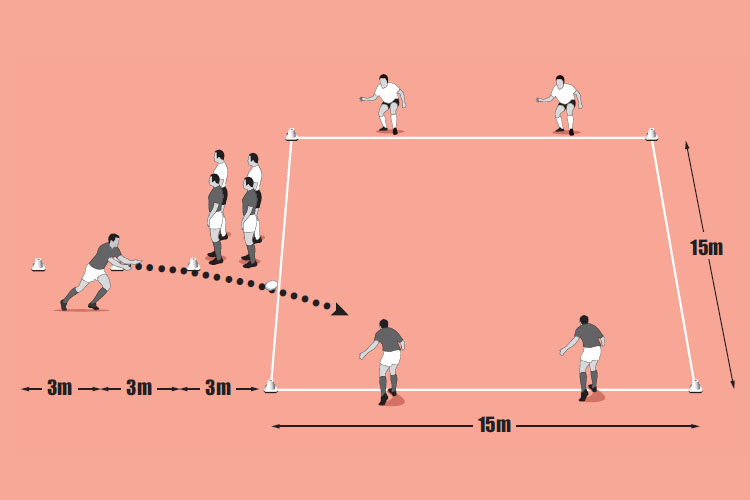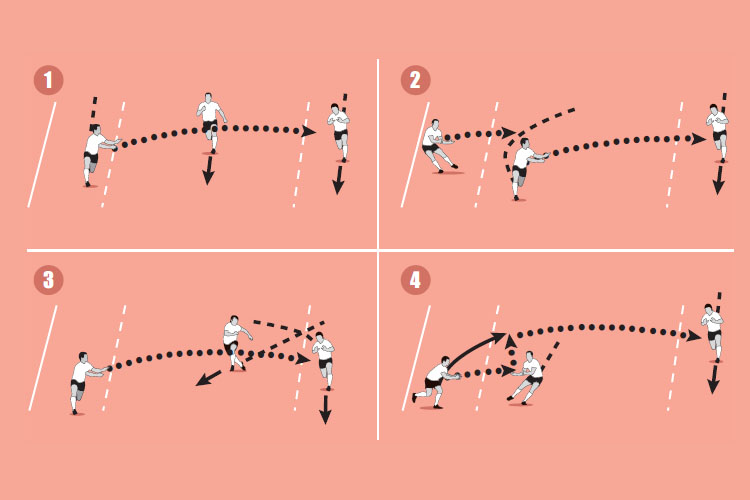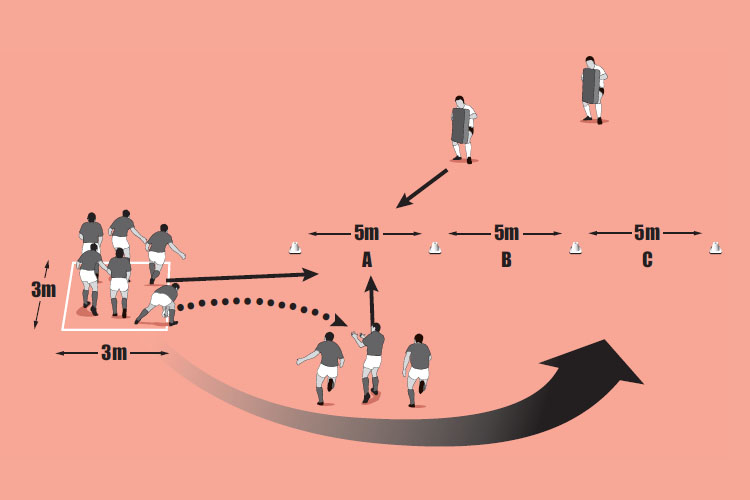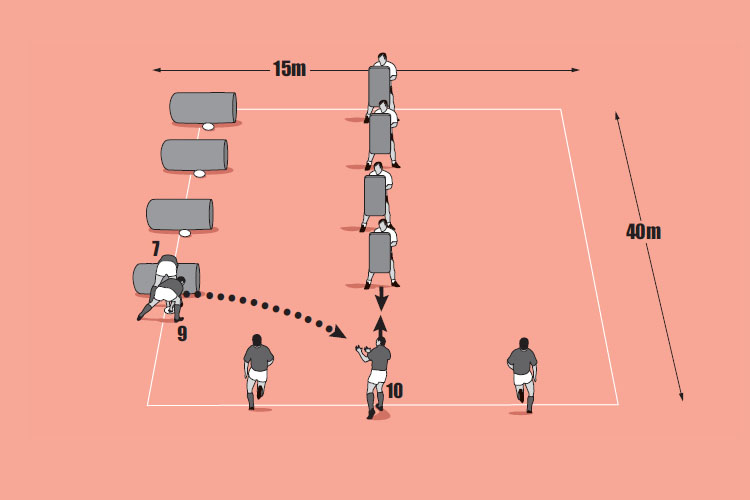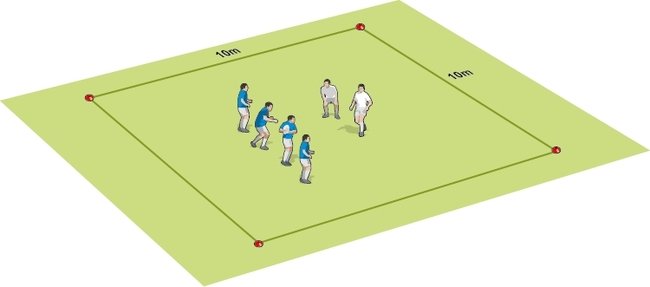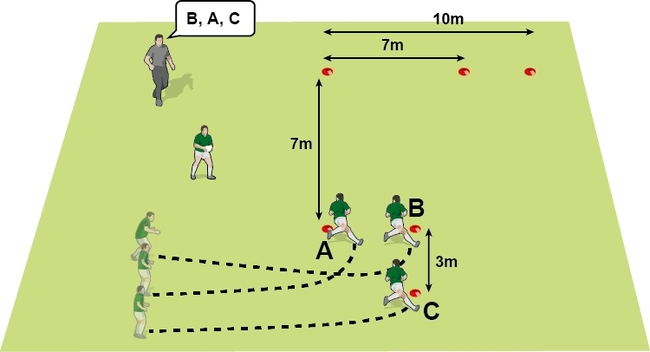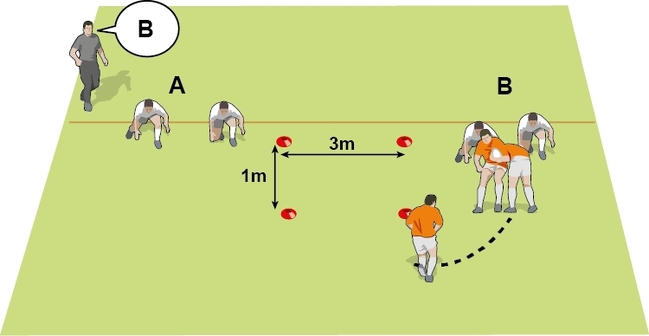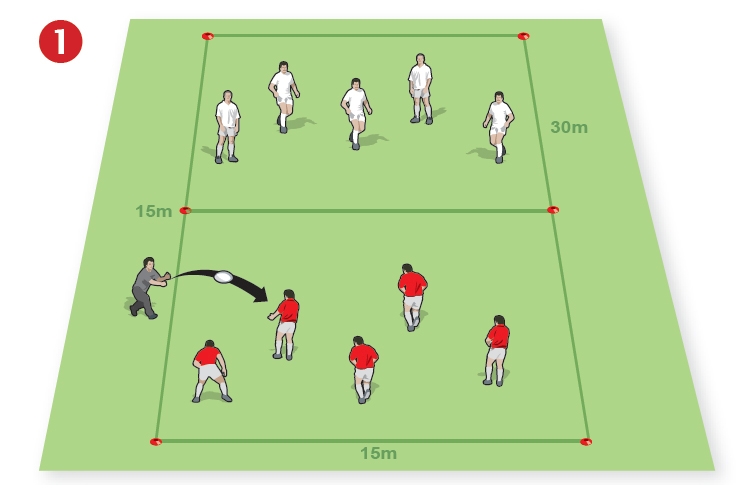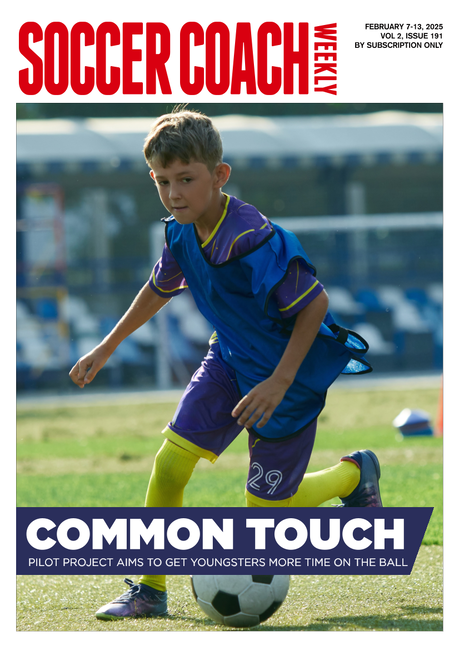Phase in, phase out
Multi-phase rugby causes players problems because they find it difficult to work out the running lines to reach rucks. Good lines means a player can arrive in the best position to clear out a threat, take the ball on, or support the ball carrier. Develop players who make decisions on where to run to at the ruck, as well as doing the right thing.
Warm up time: 5-7
Session time: 8-10
Development time: 8-10
Game time: 15-20
Warm down time: 5-7
What to think about
What is your ruck policy? How many players do you want to go into each ruck to win the ball? Ideally, one or two players will win the ball. But you need a plan to deal with an opposition that disrupts and sends in more defenders. This session also gives you a chance to work on patterns of play from slow and quick ball. How will you set up your players to restart from a slow ruck? How will they exploit quick ball? How long before you allow the backs to get their hands on the ball?set-up
- Look up and see whether you are needed at the next ruck.
- Adjust your running lines to be in position to drive out a player at the ruck, support or take a pass.
- Communicate your intentions to your team mates.
What you get your players to do
Set up cones, balls and ruck pad holders as the top picture. Put four attackers in front of the first box. They run at the ruck pad holder, who moves forward as they enter the box. Once he is cleared out of the box, the attackers move onto the next box to repeat. In the meantime, the cleared ruck pad holder takes the ball to the next free box to defend again. The attackers have to decide how many players they need to clear out the ruck pad holders from each box. Swap ruck pad holders and repeat.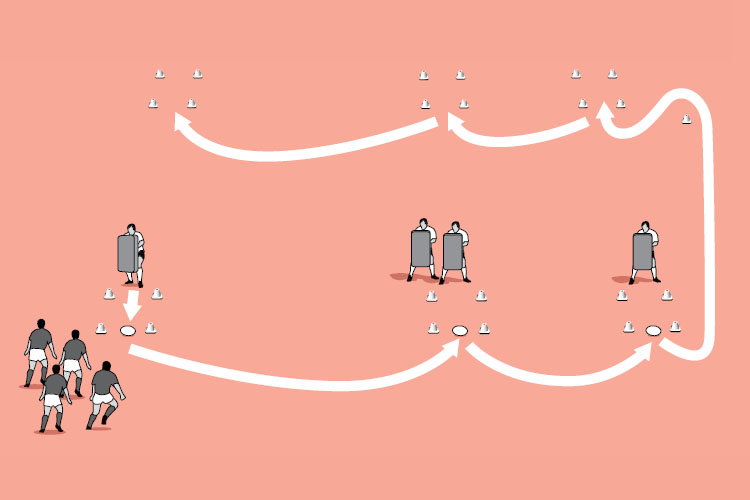
Development
Place the ruck pads by the ball to simulate a tackled player. The ball can be on the defenders’ or attackers’ side. Repeat the exercise as before with live tackling. The defenders can only go for the ball once the attack has entered the box.Related Files
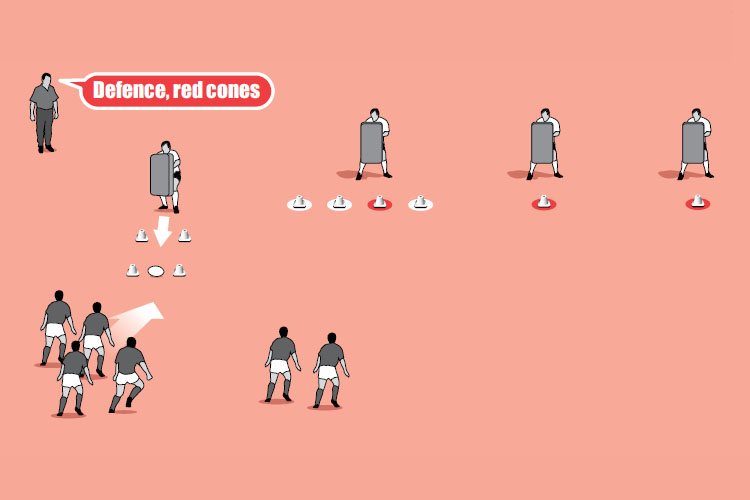
Game situation
Set out the cones and ruck pads as the middle picture. Have a set of 3 cones near the ruck (let’s say they are white) and a set of 3 cones spread out from the ruck (let’s say they are red).Tell the far three ruck pad holders which set of cones to defend from. That is, whether to take up a narrow or spread defence.
Have the attack clear out the first ruck pad holder away from the ball in the first box. They then attack as the remaining ruck pad holders move from their cones. If the ball carrier is tackled or takes contact, he goes to ground and the other attackers have to clear the ruck pad holders. Play through another phase.
Develop this by removing the ruck pads.
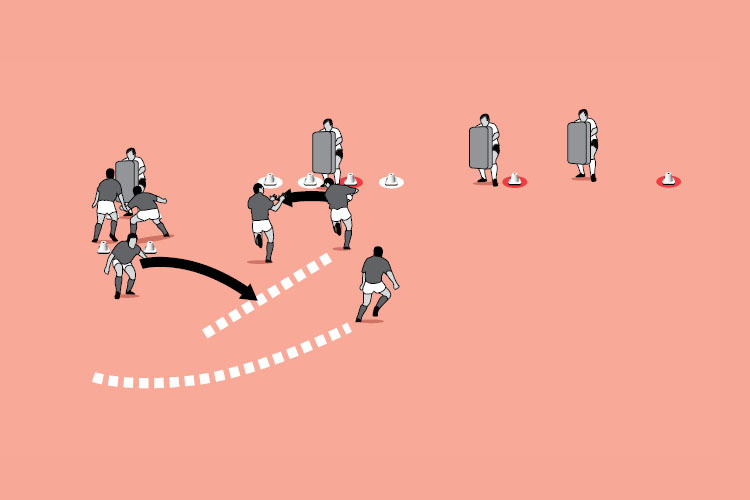
What to call out
- “Drive in square”
- “Commit only if you are going to make a difference”
Newsletter Sign Up
Coaches Testimonials

Gerald Kearney, Downtown Las Vegas Soccer Club

Paul Butler, Florida, USA

Rick Shields, Springboro, USA

Tony Green, Pierrefonds Titans, Quebec, Canada
Subscribe Today
Be a more effective, more successful rugby coach
In a recent survey 89% of subscribers said Rugby Coach Weekly makes them more confident, 91% said Rugby Coach Weekly makes them a more effective coach and 93% said Rugby Coach Weekly makes them more inspired.
Get Weekly Inspiration
All the latest techniques and approaches
Rugby Coach Weekly offers proven and easy to use rugby drills, coaching sessions, practice plans, small-sided games, warm-ups, training tips and advice.
We've been at the cutting edge of rugby coaching since we launched in 2005, creating resources for the grassroots youth coach, following best practice from around the world and insights from the professional game.


